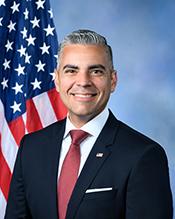0
0
0
Chiricahua National Park Act
12/15/2023, 3:55 PM
Summary of Bill HR 1479
Bill 118 hr 1479, also known as the Chiricahua National Park Act, is a piece of legislation introduced in the US Congress. The bill aims to establish the Chiricahua National Park in Arizona as a designated national park, providing protection and preservation for the unique natural and cultural resources found in the area.
The Chiricahua National Park Act outlines the boundaries of the proposed national park, which encompasses a diverse range of ecosystems, including forests, grasslands, and rock formations. The bill also designates certain areas within the park as wilderness areas, ensuring that they remain undeveloped and protected for future generations.
In addition to establishing the national park, the Chiricahua National Park Act includes provisions for the management and conservation of the park's resources. This includes measures to protect endangered species, preserve historical sites, and promote sustainable recreation and tourism within the park. Overall, the Chiricahua National Park Act seeks to recognize the importance of the Chiricahua region and ensure its long-term preservation for the enjoyment of current and future generations. The bill has garnered bipartisan support in Congress and is seen as a positive step towards protecting one of Arizona's most unique and valuable natural areas.
The Chiricahua National Park Act outlines the boundaries of the proposed national park, which encompasses a diverse range of ecosystems, including forests, grasslands, and rock formations. The bill also designates certain areas within the park as wilderness areas, ensuring that they remain undeveloped and protected for future generations.
In addition to establishing the national park, the Chiricahua National Park Act includes provisions for the management and conservation of the park's resources. This includes measures to protect endangered species, preserve historical sites, and promote sustainable recreation and tourism within the park. Overall, the Chiricahua National Park Act seeks to recognize the importance of the Chiricahua region and ensure its long-term preservation for the enjoyment of current and future generations. The bill has garnered bipartisan support in Congress and is seen as a positive step towards protecting one of Arizona's most unique and valuable natural areas.
Congressional Summary of HR 1479
Chiricahua National Park Act
This bill redesignates the Chiricahua National Monument in Arizona as the Chiricahua National Park.
Read the Full Bill
Current Status of Bill HR 1479
Bill HR 1479 is currently in the status of Bill Introduced since March 9, 2023. Bill HR 1479 was introduced during Congress 118 and was introduced to the House on March 9, 2023. Bill HR 1479's most recent activity was Referred to the Subcommittee on Federal Lands. as of March 22, 2023
Bipartisan Support of Bill HR 1479
Total Number of Sponsors
1Democrat Sponsors
0Republican Sponsors
1Unaffiliated Sponsors
0Total Number of Cosponsors
0Democrat Cosponsors
0Republican Cosponsors
0Unaffiliated Cosponsors
0Policy Area and Potential Impact of Bill HR 1479
Primary Policy Focus
Public Lands and Natural ResourcesAlternate Title(s) of Bill HR 1479
Chiricahua National Park Act
Chiricahua National Park Act
To establish the Chiricahua National Park in the State of Arizona as a unit of the National Park System, and for other purposes.
Comments
Sponsors and Cosponsors of HR 1479
Latest Bills
Southcentral Foundation Land Transfer Act of 2025
Bill HR 3620December 11, 2025
Affordable HOMES Act
Bill HR 5184December 11, 2025
To reauthorize the Junior Duck Stamp Conservation and Design Program Act of 1994.
Bill HR 1098December 11, 2025
A bill to provide for an extension of the legislative authority of the National Emergency Medical Services Memorial Foundation to establish a commemorative work in the District of Columbia and its environs.
Bill S 2546December 11, 2025
Moab UMTRA Project Transition Act of 2025
Bill S 1321December 11, 2025
Federal Mechanical Insulation Act
Bill HR 3474December 11, 2025
Providing for consideration of the bill (H.R. 2550) to nullify the Executive Order relating to Exclusions from Federal Labor-Management Relations Programs, and for other purposes.
Bill HRES 432December 11, 2025
Protecting Our Courts from Foreign Manipulation Act of 2025
Bill HR 2675December 11, 2025
Tipped Employee Protection Act
Bill HR 2312December 11, 2025
A bill to redesignate the National Historic Trails Interpretive Center in Casper, Wyoming, as the "Barbara L. Cubin National Historic Trails Interpretive Center".
Bill S 790December 11, 2025
Chiricahua National Park Act
Bill S 736March 12, 2024
